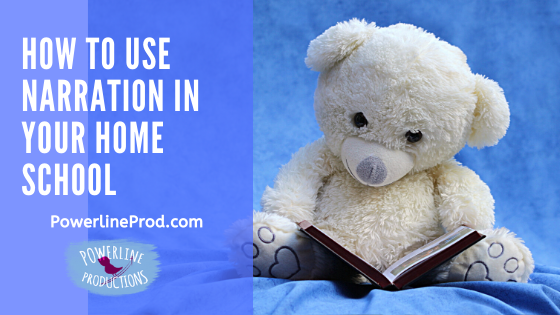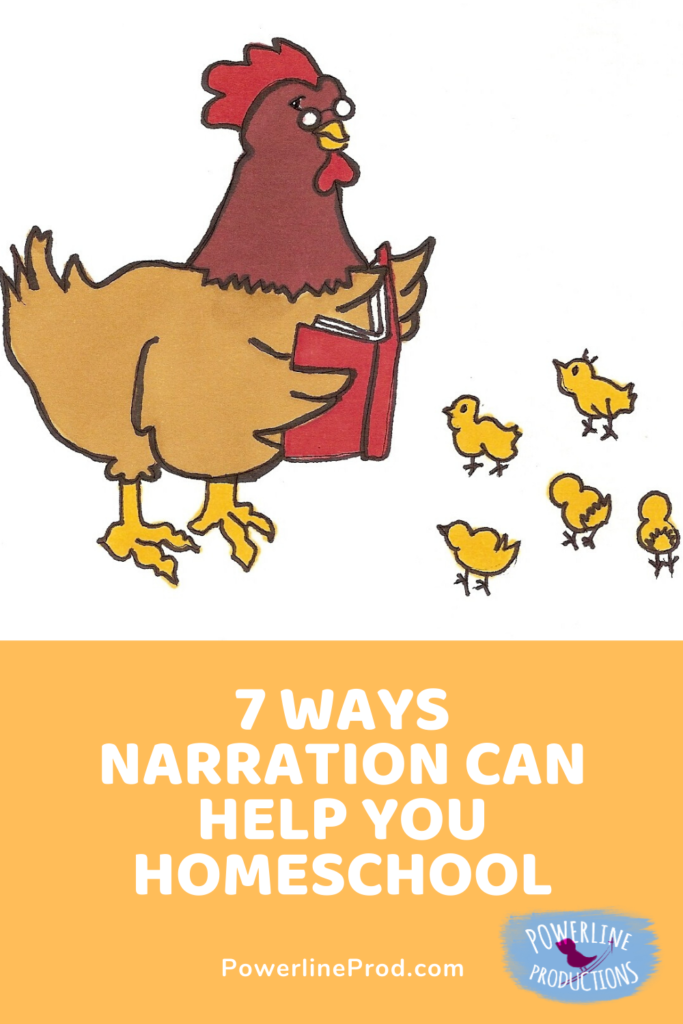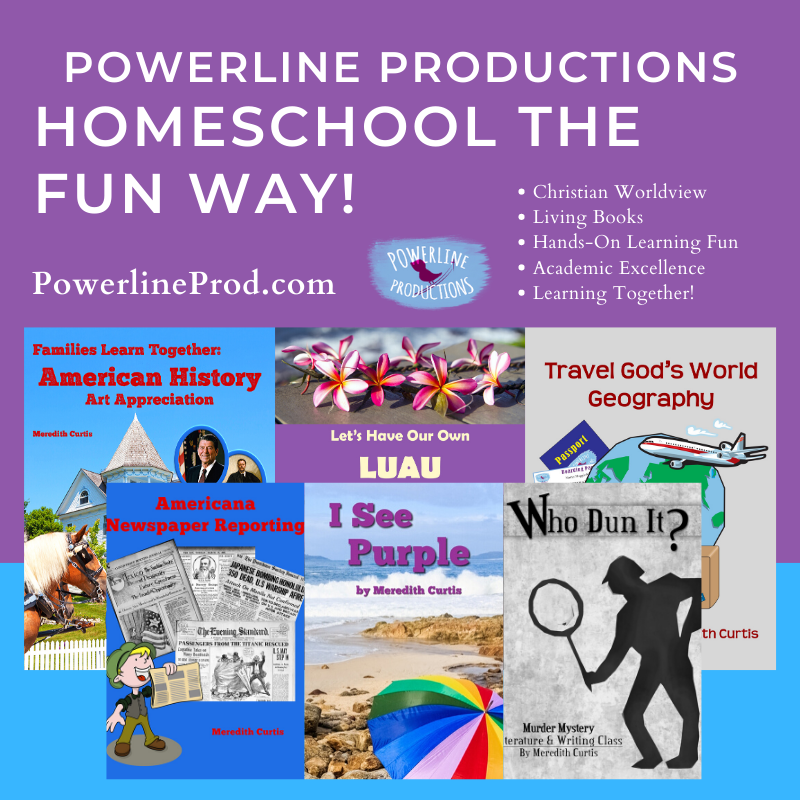You may have heard of narration, especially in Charlotte Mason homeschool circles, and wondered what it is.
Narration is really quite simple!
Narration happens when a child can retell or write about what he has heard or read. Here are 7 reasons narration is a great benefit to home education.
Narration Allows Parents To Discover What Children Are Learning
If I child can tell you what they just heard or read, you know that “got it!” Narration also lets you know how much they understand. Additionally, it can help you discern what they are still not grasping.

Narration Works From Preschool To High School
Little children can draw a picture of what they learn or just tell you what they remember. But it continues to work through high school. I found discussing what my teens were learning with them was the surest way to know how much they were grasping of their schoolwork.
Narration can also be written, but doesn’t need to be formal writing. We’ve used everything from notes to summaries to formal essays.
Narration Gives Them Notes To Refer Back To
When children are taking notes on a living book they are reading on electricity, they can save the notes and reread them later to refresh their memories.

Narration Can Be Done Anywhere
When my parents were sick and we spent so much time in hospitals, my kids would read their books and then tell me all about what they read. It just sounded like a conversation to others in the waiting rooms, but I was listening carefully to see if they were grasping the material.
Narration Helps Children Retain Knowledge
Talking or writing about what they are reading and learning helps children cement the knowledge in their memory banks. The act of retelling requires them to digest what they have read and actually think about it.
Some many preteens and young teens often read pages without really reading if you know what I mean. Their minds are miles away. Narration requires and motivates them to focus.

Narration Can Lead To Thoughtful Discussions
Talking about what we just read about history often leads to all kinds of discussions. We have ended up on rabbit trails about philosophies that affected decisions, fashion, travel, religion, and how the Lord was actually moving, causing nations to rise and fall.
There is nothing more fun to me than really digging into things. Narration is great fuel to the fire of analysis and deep thinking.
Narration Is Relational
Especially if narration is verbal, narration is relational. It is a Mom talking to her son about the exciting book he just read on panthers. Or a Dad and daughter deciding to learn more about magnets after she has read a living book about them.
Intellectual conversations are a great way to build a strong relationship with your children and strengthen their mind at the same time.
If you have tried narration yet, I encourage you to take the plunge. It’s so much easier than you think!
Until next time, Happy Homeschooling!
Warmly,
Meredith Curtis

